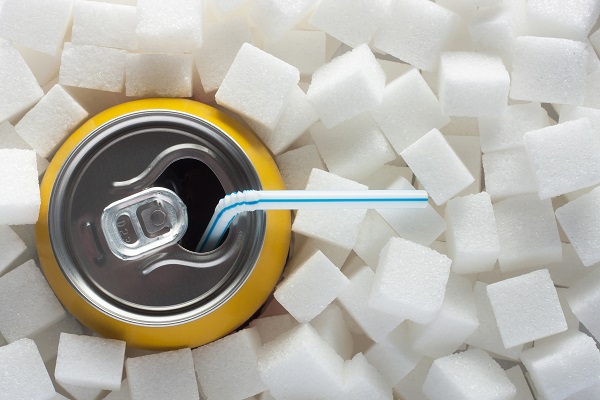England's new obesity plan 'watered down'

The rising numbers of overweight and obese children in England is one of the country’s biggest health problems, threatening to shorten life spans for a generation and overwhelm the health service.
The government has today unveiled a national plan to tackle the problem – but health experts and campaigners say the strategy doesn’t go far enough.
Nearly one third of children aged 2-15 in England are overweight or obese, and the new plan aims to cut these rates significantly over the next 10 years. The measures include a new tax or ‘levy’ on soft drinks, a goal of cutting sugar content across all foods by 20% and ensuring all children have one hour of physical activity a day.
But many say the plan has been watered down – at the heart of these criticisms is the fact that most of these targets will be voluntary rather than mandatory.
MP Sarah Wollaston is chair of the Commons health select committee and said the plan showed "the hand of big industry lobbyists" in curbing enforceable rules.
The plan asks the food and drink industry to cut 5% of the sugar in products popular with children over the next year, with the ultimate target being 20%. Progress on this will be monitored by Public Health England, but action from food and drinks companies will remain voluntary.
Dr Wollaston told the BBC that "whole sections” from the original draft of the plans have been dropped, including measures on curbing advertising junk food to children and supermarket promotions on unhealthy food.
The government says that if progress against obesity remains insufficient, it will consider "whether alternative levers need to be used".
Doctors’ association the BMA also expressed its disappointment at the targets being voluntary.
Chef and food campaigner Jamie Oliver was instrumental in persuading former Chancellor George Osborne to introduce the levy on soft drinks from 2018 – but says he is in "in shock" at the "disappointing" plan.
"It contains a few nice ideas, but so much is missing," he wrote on social media.
I'm in shock. The long-awaited Childhood Obesity Strategy from @theresa_may’s new Government is far from robust... https://t.co/TezmjiDoFL
— Jamie Oliver (@jamieoliver) August 18, 2016
However Jane Ellison, Financial Secretary to the Treasury defended the plan as ‘ambitious’.
Ms Ellison was formerly the public health minister involved in drawing up the strategy, and said the government had followed advice of health experts. She claimed the UK already had some of the "toughest restrictions in the world".
The Obesity Health Alliance is a coalition of 33 charities, medical royal colleges and campaign groups. It says the plan is "disappointingly short of what is needed", with some expected measures "significantly watered down or removed entirely".
Being overweight or obese doesn’t just raise the risk of cardiovascular diseases or type 2 diabetes, but is also known to increase chances of developing certain cancers.
Commenting on the plan, Sir Harpal Kumar, chief executive of the charity Cancer Research UK, said it was a "missed opportunity" to tackle childhood obesity.
Ian Wright, of the Food and Drink Federation said companies have already made significant progress in cutting sugars from their products, claiming a 16% reduction between 2012 and 2016.
The food industry group says the sugar reduction target was flawed because it focused on "the role of this single nutrient, when obesity is caused by excess calories from any nutrient".
Finally, there will also be concerns about the ability of local councils to drive the strategy forward as they face further cuts to their budgets – these are set to fall from £3.38bn in 2016/17 to £3.13bn in 2020/21.










